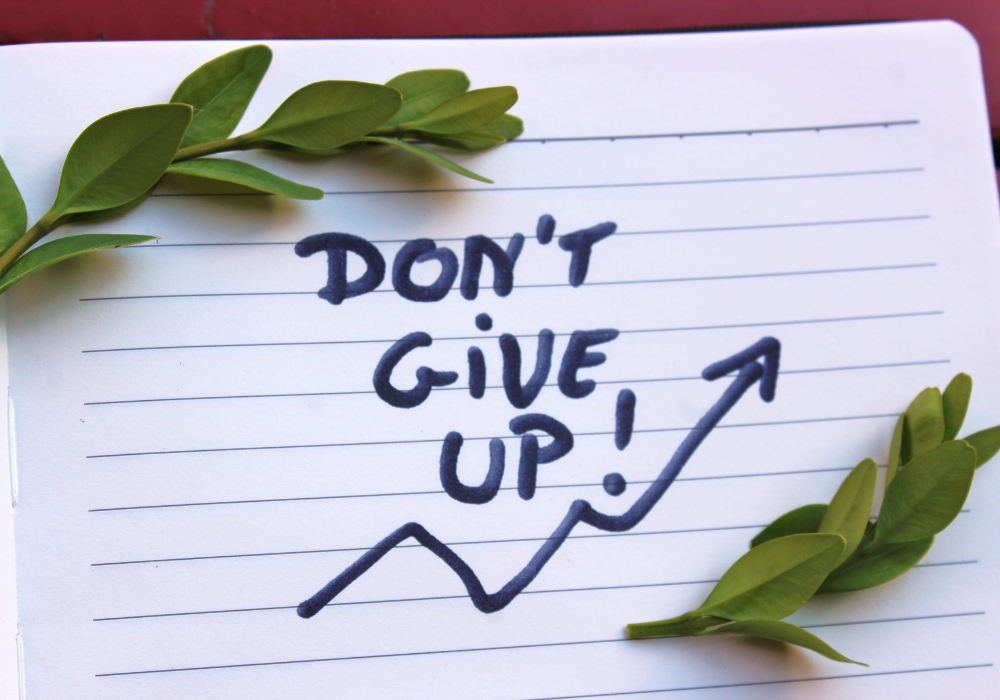Trends fade, industries collapse, but these skills always hold their value.

Careers shift, apps update, whole industries rise and fall overnight. What seemed essential ten years ago might already be outdated. But some skills? They’re forever. They hold up in a crisis, during a career pivot, or when everything around you starts to feel uncertain. These aren’t just “good to have”—they’re the kind of strengths that quietly carry people through chaos and come out stronger on the other side.
We’ve been trained to chase the next big thing—new tools, new platforms, new ways to hustle. But when the dust settles, it’s the human stuff that sticks. The ability to think clearly, adapt quickly, and build real connections doesn’t expire. It doesn’t rely on tech trends or job titles. Whether the world speeds up, breaks down, or just keeps getting weirder, these 12 skills are the kind that always find a way to matter.
1. Critical thinking cuts through noise no matter what era you’re in.

When the world gets messy, people want answers—fast. But not every headline is true, not every expert knows what they’re talking about, and not every trend deserves your attention. Critical thinking is how you spot the difference. Per a study published by John List for the Oxford Academic, individuals with higher critical thinking abilities are less susceptible to misinformation, highlighting the importance of critical thinking in today’s information-rich environment
In a world overflowing with information, this skill is gold. Whether you’re navigating a new job, interpreting a news story, or evaluating a decision that could affect your future, being able to think clearly and independently is non-negotiable. It’s not about being cynical—it’s about being curious and careful.
2. Communication skills open doors even when everything else closes.

No matter how advanced technology gets, people still need to talk—and be understood. Whether it’s in a job interview, a heated group chat, or a crisis meeting, knowing how to express yourself clearly can make all the difference. That includes listening well, too—something that’s often overlooked but just as powerful. According to a McKinsey analysis cited by Jason Ballard for Forbes, effective communication can improve workplace productivity by up to 25% when employees feel connected and aligned.
Strong communication isn’t about sounding impressive. It’s about connection. It’s knowing when to speak up, how to ask the right questions, and how to explain your thoughts in a way people actually hear. It builds trust, resolves tension, and helps ideas move forward. The world could be falling apart, but if you can calmly articulate what you need or help others feel heard, you instantly become more valuable.
3. Adaptability turns chaos into opportunity instead of collapse.

Staying rigid in a fast-moving world is a recipe for burnout. Jobs change. Tools get updated. Entire industries shift under your feet. Adaptability is what helps you bend without breaking. It’s not about being passive—it’s about being agile, curious, and willing to rethink your approach when the old way stops working. A study published in ScienceDirect states, career adaptability positively predicts career satisfaction and self-rated career performance, even beyond personality traits and core self-evaluations.
This skill doesn’t mean you’re constantly reinventing yourself. It means you’re comfortable learning, adjusting, and pivoting when needed. Whether you’re facing a layoff, switching fields, or dealing with a personal curveball, adaptability gives you the resilience to navigate change without losing yourself in it. It’s one of the few skills that grows stronger the more life throws at you.
4. Problem-solving makes you useful in every possible scenario.

Problems are universal. They don’t care what field you’re in, what degree you have, or how fancy your job title sounds. Every team, every business, every community needs people who can look at a mess and figure out a way through it. Problem-solving isn’t just logical—it’s creative, scrappy, and deeply human.
You don’t need to be a genius. You need to be willing to try, fail, regroup, and try again. Whether it’s fixing a broken process at work or helping a neighbor sort out a real-life emergency, people who solve problems earn trust fast.
They bring calm into chaos, and solutions into confusion. Even in AI-driven environments, this is the skill that stands out. Technology can analyze patterns. But you? You can see what’s missing, spot what doesn’t add up, and find new ways to make things work. That ability will never go out of style.
5. Emotional regulation helps you stay grounded when things fall apart.

You can’t control the world, but you can learn how to steady yourself inside it. Emotional regulation isn’t about being unbothered or pretending everything’s fine—it’s about recognizing what you feel and knowing how to respond instead of react. It’s what keeps you from spiraling during a tough day or snapping in the middle of a conflict.
This skill becomes your anchor when life gets turbulent. Breathing exercises, reframing thoughts, taking a pause before speaking—these tools give your nervous system a chance to settle so you can show up with more clarity and less panic. It also helps you lead better, work better, and connect better with other people. When others are freaking out, being the calm one isn’t just helpful—it’s powerful. And the more chaotic the world gets, the more emotional regulation becomes not just a personal asset, but a collective one.
6. Resourcefulness keeps you moving even when options run out.

When things fall apart, the people who keep going aren’t always the ones with the most resources—they’re the ones who know how to use what’s already in front of them. Resourcefulness is about creativity under pressure. It’s about finding the workaround, making the phone call, reusing something in a new way, or learning on the fly.
This skill doesn’t require money, connections, or formal training. It thrives in limitations. Whether you’re patching together a solution with duct tape and a YouTube tutorial or navigating an unfamiliar situation at work with no clear roadmap, your ability to adapt, improvise, and solve with what you’ve got becomes priceless.
In crisis situations, it’s the difference between giving up and getting through. And the best part? It builds confidence. The more you solve with less, the more you trust your own ability to figure things out—even when the world gets unpredictable.
7. Time management helps you protect your energy and focus.

Time might feel like it’s slipping through your fingers, but managing it well is a skill that pays off forever. It’s not about packing every hour or running a perfect schedule. It’s about knowing what matters, what can wait, and what’s draining you for no reason. Time management is really energy management—how you structure your day shapes how you feel.
In a world of constant notifications and shifting priorities, the ability to focus, plan ahead, and set boundaries is rare and incredibly valuable. It keeps you from burning out and helps you actually make progress, even in chaos. Whether you’re juggling multiple jobs, parenting, or just trying to reclaim a little time for yourself, managing your hours wisely creates space—for rest, for growth, for what matters most. The clock won’t slow down. But how you use your time is still yours to shape.
8. Curiosity keeps you learning long after school ends.

Everything changes—industries, tools, cultures, expectations. The only way to stay useful is to keep learning. And the people who do that best aren’t necessarily the smartest. They’re the most curious. Curiosity is what keeps your brain flexible and your mindset open. It nudges you to ask questions, explore new ideas, and push past “I already know this.”
You don’t need a degree to stay curious. You need a willingness to admit what you don’t know and a hunger to figure it out. Read something unfamiliar. Watch a documentary that challenges your view. Ask better questions at work. It’s not about collecting trivia—it’s about staying mentally alive. The world rewards fast learners, but even more than that, it rewards the people who never stop wondering. Curiosity keeps you from getting stuck, makes you more adaptable, and helps you connect the dots in ways others miss.
9. Conflict resolution helps you survive—and thrive—in any group.

Where there are people, there are disagreements. Whether it’s family, coworkers, neighbors, or strangers on the internet, conflict is part of life. But not everyone knows how to handle it well. That’s where conflict resolution comes in—it’s the ability to stay calm, listen, de-escalate, and find common ground even when emotions run high.
This isn’t about avoiding conflict or being a pushover. It’s about staying grounded when things get tense and helping others feel seen without letting the situation spiral. In professional settings, it makes you a better teammate and leader. In personal relationships, it helps build deeper trust. And in high-stress environments, it can be the one skill that keeps a group functional. The world isn’t getting less stressful—but being someone who brings clarity, calm, and resolution into chaos? That’s the kind of strength that stands out anywhere.
10. Digital literacy helps you adapt as technology keeps evolving.

You don’t have to be a coder or a tech expert to thrive in today’s world—but you do need to know how to navigate the basics. Digital literacy means more than checking your email. It’s understanding how to protect your data, spot misinformation, use new platforms, and solve problems when tech doesn’t work the way it should.
The tools will keep changing, but the mindset stays the same: be willing to learn, experiment, and troubleshoot without panicking. Whether you’re navigating AI tools, managing your online presence, or just figuring out how to streamline your workflow, digital skills give you leverage in almost every area of life.
And as more of the world moves online, those who can move confidently with it—without getting overwhelmed or left behind—will always be one step ahead. It’s not about mastering every app. It’s about staying fluent in a language the world already speaks.
11. Self-motivation keeps you moving when no one’s watching.

Deadlines help. So do managers, teachers, and accountability buddies. But sometimes, the only person who’s going to push you forward is you. Self-motivation is the quiet engine behind so many long-term wins. It shows up when the initial excitement fades and the real work begins—when you’re tired, unrecognized, or doubting whether it’s even worth it.
This skill isn’t about constant hustle or toxic productivity. It’s about knowing your “why” and being willing to take the next step even when progress feels slow. It’s what gets you out of bed to job hunt after a layoff, or helps you keep practicing a skill no one told you to learn. Self-motivated people don’t wait for permission or perfect timing. They just start, and keep going. That drive is a compass in uncertain times—it points you forward, even when everything else feels stuck.
12. Empathy never goes out of style—and it’s more powerful than ever.

In a world that feels increasingly divided, empathy is a radical act. It’s the skill of listening without interrupting, of considering someone else’s experience even when you don’t share it. It makes you a better coworker, a stronger leader, and a more grounded human being. And it doesn’t require agreement—just understanding.
Empathy helps you connect with people across generations, cultures, and belief systems. It softens conflict and strengthens collaboration. And in moments of crisis, it builds trust faster than any resume or credential. The more complex the world becomes, the more essential it is to remember that people are at the center of everything. Projects, plans, communities—they all run on human connection. Empathy doesn’t make you soft. It makes you strong in ways that algorithms can’t replicate. And that kind of strength is timeless.